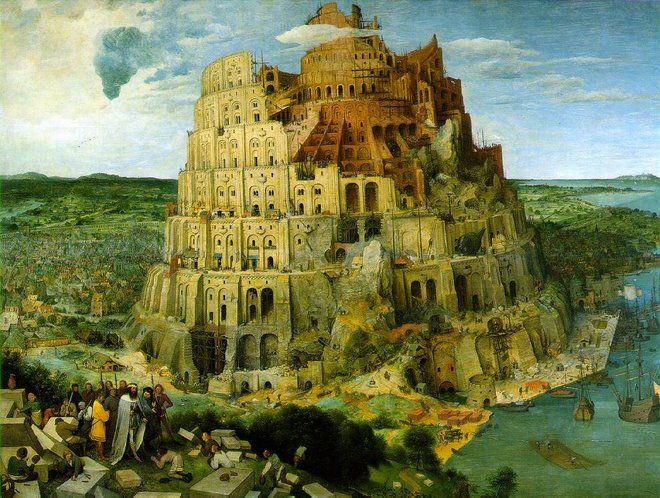 A masterpiece from Angola. Enjoy! R.
A masterpiece from Angola. Enjoy! R.
 «Jose Adelino Barcelo de Carvalho aka Bonga Kwenda was Portuguese champion on 400 metres for Benfica at the time Angola was still a part of the Portuguese colonial empire, a situation that lasted until 1975. Bonga Kwenda was born in 1943 in Kipri to the North of Luanda in Angola of a Congolese mother and an Angolan father. In the sixties, when independence time was coming near, Bonga like some other young people of his generation, began to compose and sing in the capital city, Luanda, where he was studying. But the Portuguese colonial authorities didn't appreciate the young singers who expressed a culture typically Angolan, and Bonga went into exile in Rotterdam, Holland. The Capeverdean community of the city was already significant: men worked on the docks or for the Heineken brewery, women did domestic works. This community had its restaurants, bars, its Saturday night or Sunday afternoon dances. They were places where you put the world to rights, dreaming of independence, of the return home, and where you remembered with nostalgia and heartbreak your relatives who've stayed home.
«Jose Adelino Barcelo de Carvalho aka Bonga Kwenda was Portuguese champion on 400 metres for Benfica at the time Angola was still a part of the Portuguese colonial empire, a situation that lasted until 1975. Bonga Kwenda was born in 1943 in Kipri to the North of Luanda in Angola of a Congolese mother and an Angolan father. In the sixties, when independence time was coming near, Bonga like some other young people of his generation, began to compose and sing in the capital city, Luanda, where he was studying. But the Portuguese colonial authorities didn't appreciate the young singers who expressed a culture typically Angolan, and Bonga went into exile in Rotterdam, Holland. The Capeverdean community of the city was already significant: men worked on the docks or for the Heineken brewery, women did domestic works. This community had its restaurants, bars, its Saturday night or Sunday afternoon dances. They were places where you put the world to rights, dreaming of independence, of the return home, and where you remembered with nostalgia and heartbreak your relatives who've stayed home.
Naturally, Bonga hung out with the Rotterdam Capeverdean musicians and he recorded with them on the Morabeza label his first record Angola 72, which is still considered as one of the most interesting albums of modern African music. It was a mix of original and traditional compositions, in which Bonga sang of the tough life reality of the Angolans under the colonial domination, the poorness, the shantytowns... Then, after another recording in 74, it was finally time for Independence, the return home and the beginning of one the most prolific career for an African artist.
Recording album after album, Bonga became a star, all over Africa and in Portugal, giving the audience a dancing and lively music. However, despite his magical voice, Bonga didn't really charm the buffs of the world-music scene. The album Mulemba Xangola which is reviving the magic of the Angola 72 album and the dancing atmosphere of his Portuguese career seemed to change that. 2000 was the year of a new beginning for Bonga.» (The Leopard Man's African Music Guide – also in  Norsk version)
Norsk version)
 «Bercée par des rythmes chaloupés inspirés parfois de l’énergie du soukouss, la voix éraillée de Bonga porte des paroles imprégnées de la mélancolie d’un peuple floué. Né en 1943 à Kipiri, le maître du semba a toujours milité contre le colonialisme et le domination portugaise. Très jeune, il décide de changer son nom trop colonial, (José Adelino Barcelo) pour un nom plus africain : Bonga Kuenda. Il vit dans la banlieue pauvre de Luanda où émerge un nouveau mouvement artistique qui cherche à retrouver l’histoire et le culture de l’Angola. Le père de Bonga qui est accordéoniste, l’intègre dans son groupe. Le jeune homme joue de la dikanzas, un morceau de bambou sur lequel on frappe, très subversif car symbole d’un retour aux racines africaines. Alors que dans tout le pays, le semba, rythme clandestin, retrouve un nouveau souffle, Bonga monte son propre groupe qu’il appelle « Kissueia », la misère des quartiers pauvres en Kimbundu.
«Bercée par des rythmes chaloupés inspirés parfois de l’énergie du soukouss, la voix éraillée de Bonga porte des paroles imprégnées de la mélancolie d’un peuple floué. Né en 1943 à Kipiri, le maître du semba a toujours milité contre le colonialisme et le domination portugaise. Très jeune, il décide de changer son nom trop colonial, (José Adelino Barcelo) pour un nom plus africain : Bonga Kuenda. Il vit dans la banlieue pauvre de Luanda où émerge un nouveau mouvement artistique qui cherche à retrouver l’histoire et le culture de l’Angola. Le père de Bonga qui est accordéoniste, l’intègre dans son groupe. Le jeune homme joue de la dikanzas, un morceau de bambou sur lequel on frappe, très subversif car symbole d’un retour aux racines africaines. Alors que dans tout le pays, le semba, rythme clandestin, retrouve un nouveau souffle, Bonga monte son propre groupe qu’il appelle « Kissueia », la misère des quartiers pauvres en Kimbundu.
En 1966, athlète et footballeur, il s’exile au Portugal, s’installe à Lisbonne et poursuit son combat politique. C’est à Rotterdam, où il est contraint de fuir, qu’il sort son premier album européen Angola 72 devenu depuis un classique. Bonga a sorti depuis des dizaines de disques, enchaînant les tubes planétaires, dont «Mona ki n’gui xica» porté aux oreilles du public français par la BO de «Chacun cherche son chat», et les concerts où la chaleur de sa musique prend toute son ampleur. Incontestablement il aime, pousser son public à se déhancher et l’entraîne avec lui dans un fièvre qui ne connaît d’autre remède que la danse.» (Tv5)
 Biografia en portugués: http://pt.wikipedia.org/wiki/Bonga
Biografia en portugués: http://pt.wikipedia.org/wiki/Bonga
Link in comments (always appreciated)
 A rare (and great) collection of lusophone music from Portugal, Brasil, Mozambique, Capo Verde, São Tomé and Príncipe, Guinée-Bissau and Angola.
A rare (and great) collection of lusophone music from Portugal, Brasil, Mozambique, Capo Verde, São Tomé and Príncipe, Guinée-Bissau and Angola. «A Sara Tavares um dia lançou-me o desafio. Porque não fazer uma compilação com a participação de artistas que actuariam no Festival Musidanças desse ano.
«A Sara Tavares um dia lançou-me o desafio. Porque não fazer uma compilação com a participação de artistas que actuariam no Festival Musidanças desse ano.











